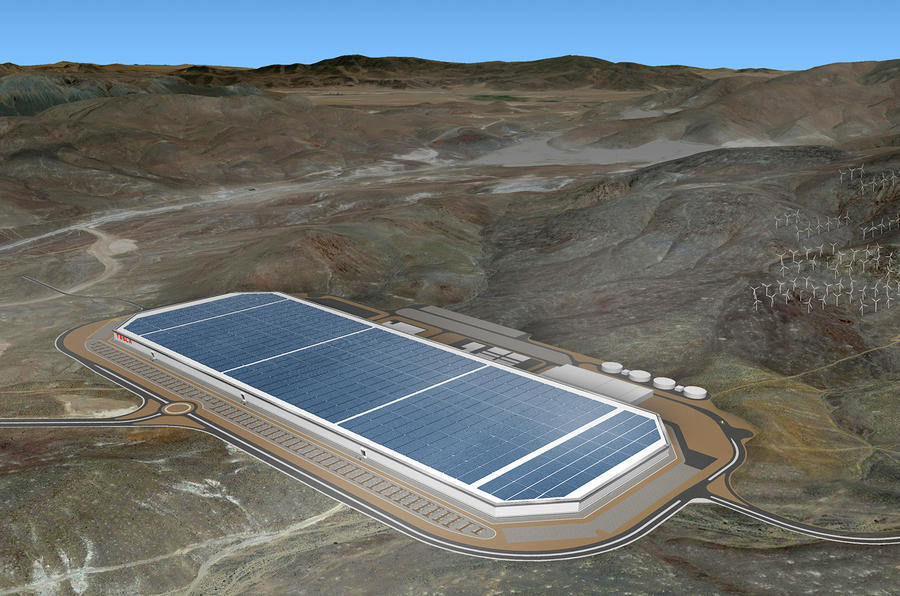Skyrocketing global demand for electrified vehicles will require the building of “at least” 10 more battery 'gigafactories' by 2025, a new intergovernmental report has said.
According to findings produced by the International Energy Agency (IEA), a Paris-based organisation that advises governments on the future of energy, the global fleet of electrified vehicles will grow from just over three million vehicles today to as many as 220 million by 2030.
This rapid growth in hybrids, full electric and fuel-cell vehicles has already started to gain traction, so much so that the number of electrified cars on the roads globally will treble by 2020. The number of vehicle chargers (both private and public) also surged by around a million between 2016 and 2017.
New UK diesel tax hike now in force
The IEA predicts that, by 2030, the growing popularity of electrified vehicles will reduce demand for oil by about 2.57 million barrels per day. However, it also suggests that, in order to achieve this and support demand for battery EVs, Tesla-style battery factories - or as Tesla CEO Elon Musk has coined them, gigafactories - will need to be opened in quick succession.
Tesla’s Nevada factory — which, when it is finished, will be the largest building in the world at more than 10 million square feet — will be able to produce 35 gigawatt-hours of batteries per year. That’s around half of the current global demand, but the IEA predicts that the world needs more than 10 times that by the end of the next decade.
Most demand for batteries will continue to come from China, which has already cemented itself as the world’s leading electrified car market, but Europe and the US will also see significant increases. Norway looks well placed to hang onto its lead in terms of market share – electrified vehicles accounted for 39% of new car sales there last year.
UK electric motor firm Equipmake ready to became world's top supplier
The UK’s electrified car market has seen rapid growth recently, with a 49.3% year-on-year increase in April. There are now 9365 new alternatively fuelled vehicles on UK roads, although the market share is still a relatively small 5.6%.
The recent downturn of diesel hasn’t provided electrified car sales with the surge in demand that some had predicted. Diesel demand in Europe fell by 13.2% last month, but figures suggest this has encouraged more people to buy petrol-powered vehicles instead, because demand for these models grew by 53.5% in April. This shift to petrol recently led to the first recorded increase in automotive CO2 output since records began.





Join the debate
Add your comment
EV Factories
I see Alice in Wonderland is alive and well.
1.Why the attack on Co2,it's the worlds fertiliser,without it we die.
2.What type of machinery builds these factories,oh that's right diesel,petrol.
3.Steel and any metal fabrication requires huge amount of sustainable energy,eg aluminium.Solar cannot provide this,nor wind.
4.Germany is one of the countries buliding new HELE coal fired power stations,which provides the base load power required for the latest community lifestyle.I thnk 1400-1600 at last count around the world.
We rush lemming like towards new technology for cars and yet when technology shows we can provide enough power with almost pollution free HELE power stations,we baulk at the chance,or some of us do.The other extremely efficent and cleanpower source are the new mini nuclear power stations available, yet again we say oh no.This negative attitude is based on the Russian reactor disaster and the one in Japan(built on a fault line),both reactors 20-30 old.
Haven't heard of a problem since those two?I can't begin to comprehend the cost of these new battery factories,it must be billions,yet we don't want embrace current available systems' which can be technically updated to meet new standards.
Heres a thought,if a Tesla 3 has a battery pack weighing between 500-1000KGs(2.1tonnes total weight)imagine an SUV already weighing that weight and you add a battery pack to it.It will end up weighing more than a lot of roads allow as max weight.The bigger SUV's would be close to 3tonnes?We are a funny beings.
Wind power
German example, fro m 10% in 2010 to nearly 20% in 2017. Amazing what can be achived in 8 years if you don't listen to ludites.
And they've got hardly any off shore production
Solar power